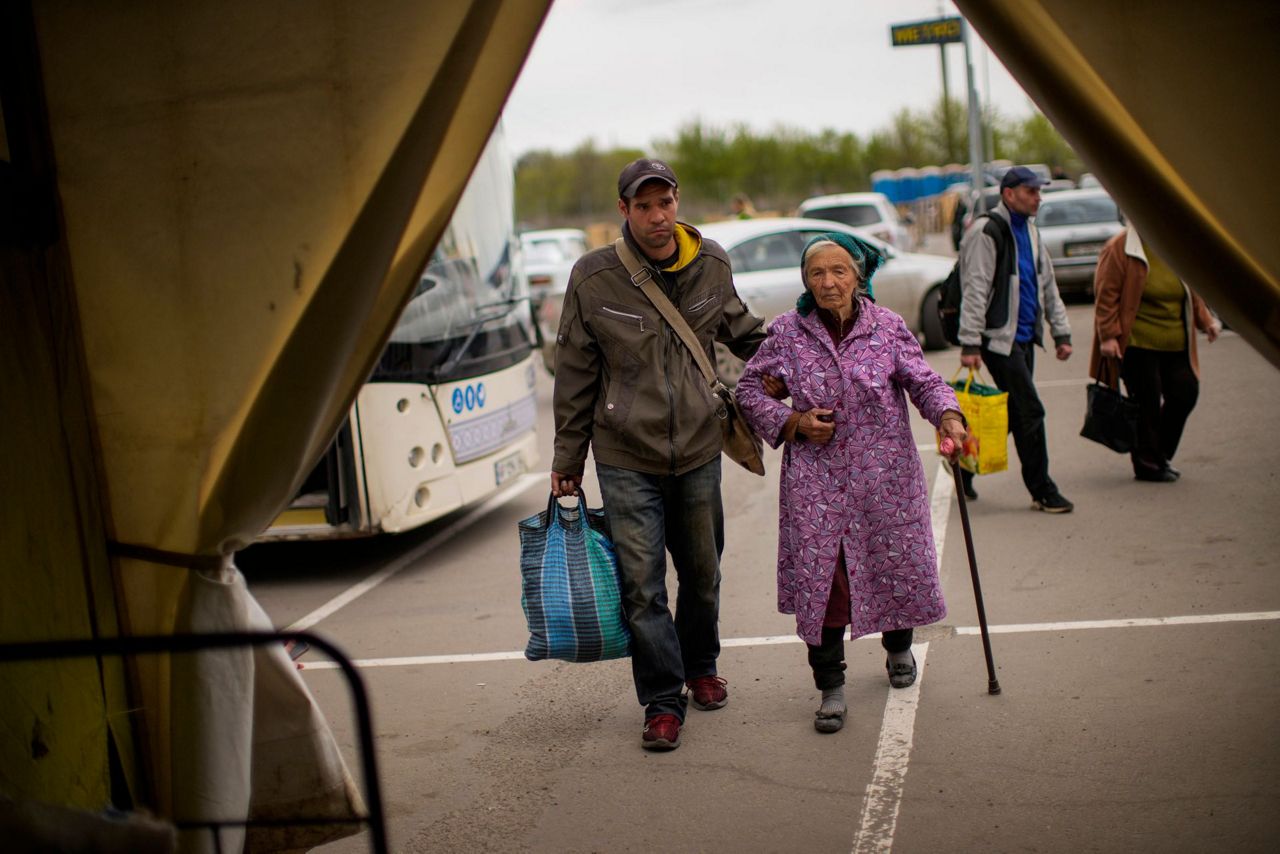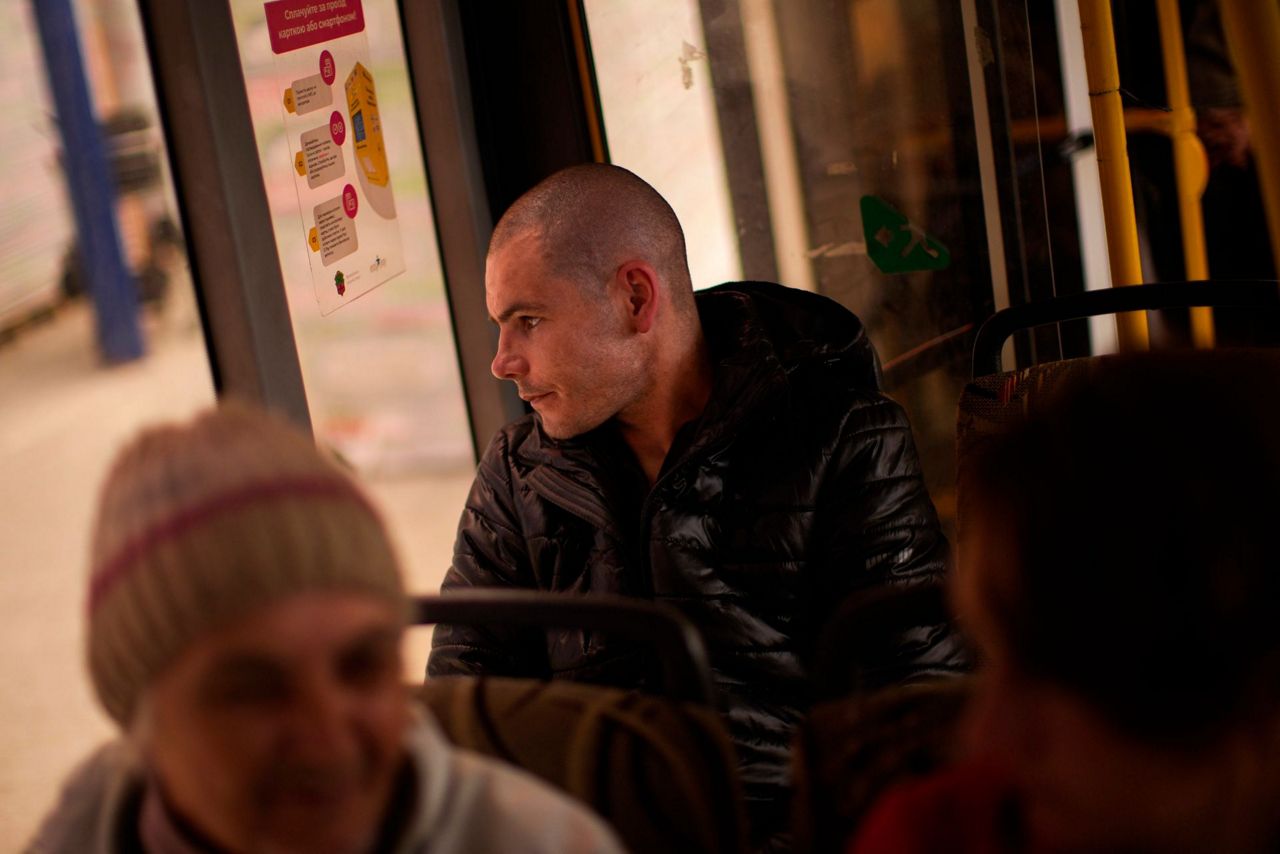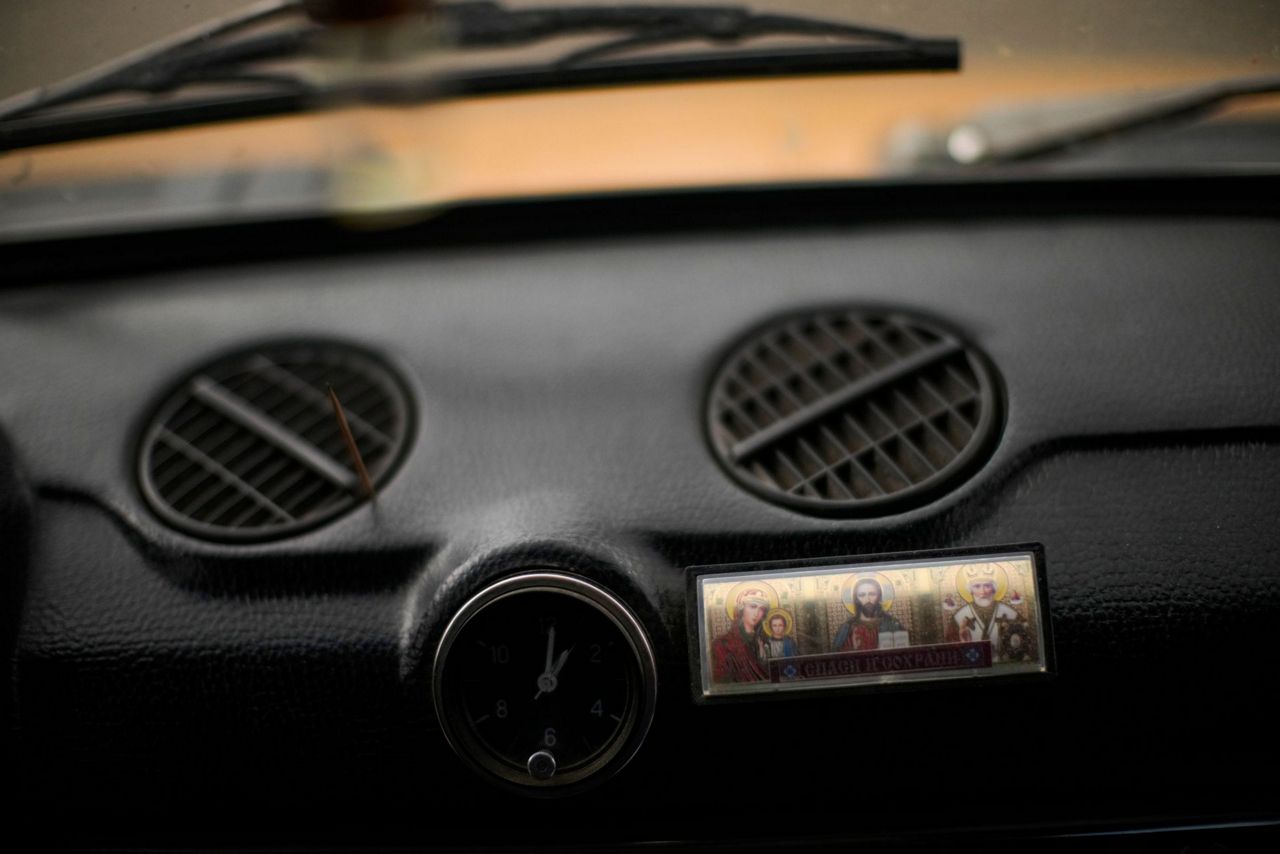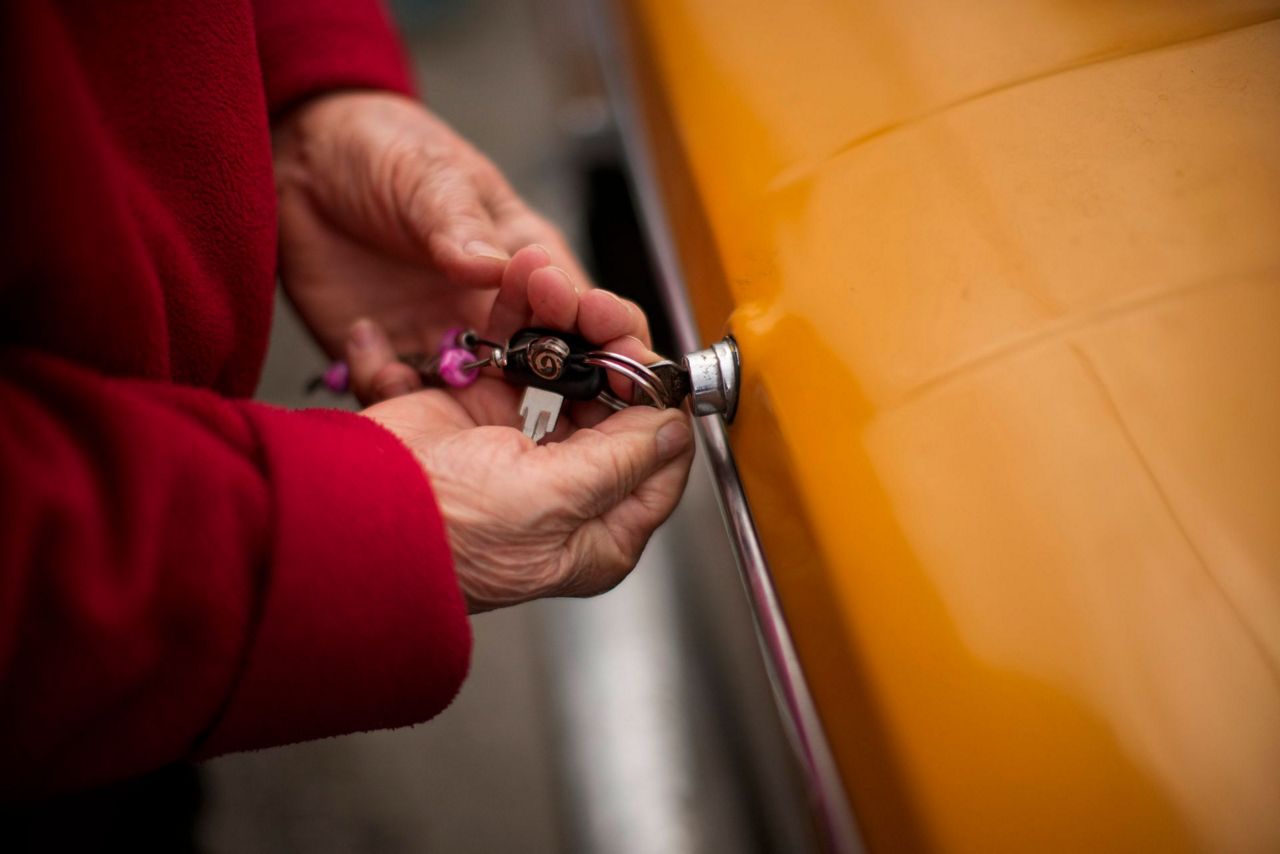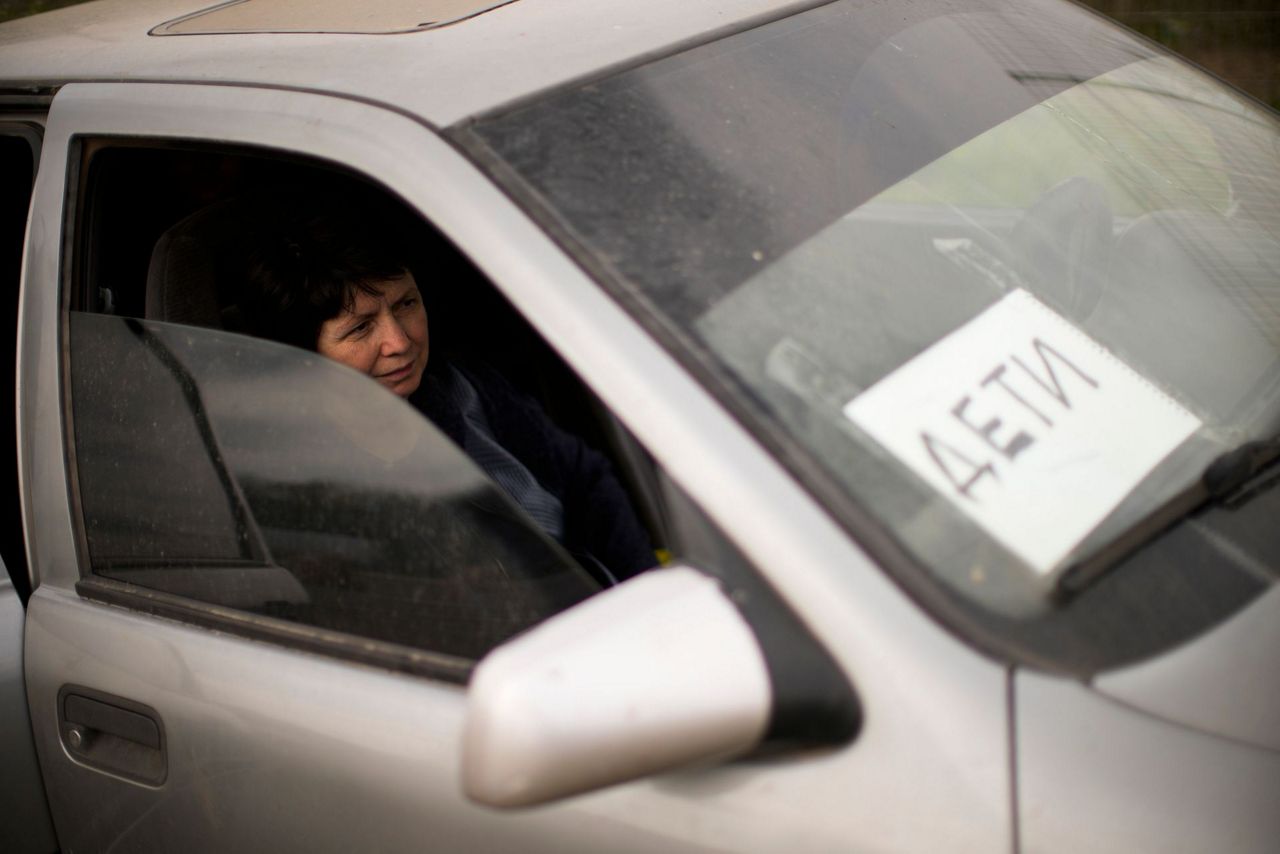ZAPORIZHZHIA, Ukraine (AP) — A tiny, Soviet-made car is bed tonight for the older couple waiting to risk their lives by crossing the war's front line in Ukraine. But they’re not fleeing — they’re going back in.
“Everything is there. Our roots are there,” says the man, 75. “Even people from Mariupol want to go back.”
They don’t want to share their names out of fears for their safety as they attempt to make the long drive back to the Donetsk region in eastern Ukraine, the scene of some of the war’s fiercest fighting.
The world is now accustomed to images of millions of Ukrainians on the run from Russia’s invasion. In their shadow are people with a different kind of desperation and daring, heading the other way.
For some the pull is to reach loved ones, often vulnerable due to illness or infirmity, who were left behind. For others it’s a journey of nostalgia and defiance.
The couple want to go back to their home in Donetsk to take a look at least. They’re old. They’re homesick. It’s time to take chances. “Where else should we go?” the man says.
He leans against the boxy yellow Lada, resting his weight on the 40-year-old car and on two canes. His belongings are whatever his wife stuffed into the trunk before they fled.
“She forgot to bring her lover,” the man says, with mischief in his eyes. His wife of 53 years laughs, then comes close to tears as reality returns.
“You can go mad if you don’t make jokes,” she says.
Recent weeks have seen many Ukrainians who fled the country return home, but in many cases that’s because Russian forces withdrew from the area around the capital, Kyiv, regrouping for an offensive in the east. It's not known how many people have crossed the front lines to return to contested areas and occupied cities.
Here in the southern city of Zaporizhzhia is a parking lot where volunteers have helped thousands of people fleeing in battered vehicles. Some have shattered windows. Others are missing doors. Many have signs saying “children” taped to their windshields.
On the edges of this are people headed in the other direction.
One is Igor Filko, who stands alone on the sidewalk, smoking. The 30-year-old was released Wednesday after three years in prison, emerging into a world he hardly recognized.
“Everything is different,” he says. “Everything is wrong.”
He is trying to make his way to the seaside city of Berdyansk and his wife, small child and mother. He sleeps at the train station. He has no phone, borrowing one from a volunteer at the reception center to call his family. He has no car, little money and a growing sense of just how dangerous it is to go home.
After his release, he tried to set off on foot but was quickly stopped at a checkpoint. Soldiers told him he wouldn’t be let out walking and certainly wouldn’t be let back in. Now he waits for a corridor to open.
Russian forces are tightening their control over Berdyansk, Filko says. They tell residents they should switch to Russian passports and the currency will change to the ruble soon. His family wants to leave. He wants to help them.
“I don’t know of another plan,” Filko says. “All my hopes are on getting at least my child out.”
Each family reaching the reception center has its own harrowing story supporting that desire to flee.
Tatyana Vasileva’s vehicle was shot at near the final checkpoint on the journey from occupied Melitopol, in the southeast. A shell flew over their roof, and Russian soldiers stole her money.
“Thank God we left before it got too bad,” Vasileva says.
Many of the new arrivals are from the southern city of Kherson, where Russian flags now fly.
Vitaly Bizyuk and his family drove three days to find an open corridor from there to Zaporizhzhia.
Along the way, they were pressured at Russian checkpoints to change their mind. Bizyuk is originally from Crimea, which was annexed by Russia in 2014. “They asked me, ‘Why not go there?’” he says. “I said, ‘Why, what did I forget there?’”
Disheveled and standing next to his dust-covered car, he describes life under occupation. The ruble will be introduced Sunday. Tanks are in the streets. The channels on TV, and the brands in markets, are Russian.
Bizyuk holds up a pack of Russian cigarettes and looks unhappy: “I needed to smoke.”
Over two months into the war, he also needed to get out. Unlike the couple in the Lada, he sees no return in sight.
___
Follow AP’s coverage of the war in Ukraine: https://apnews.com/hub/russia-ukraine
Copyright 2022 The Associated Press. All rights reserved. This material may not be published, broadcast, rewritten or redistributed without permission.



